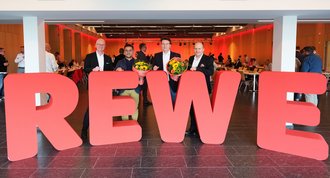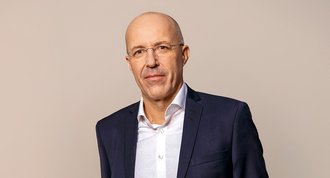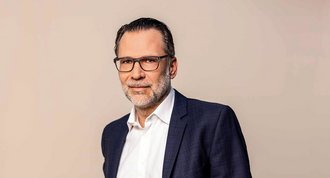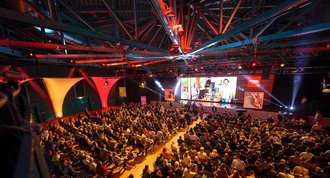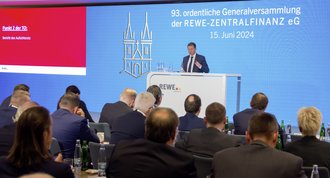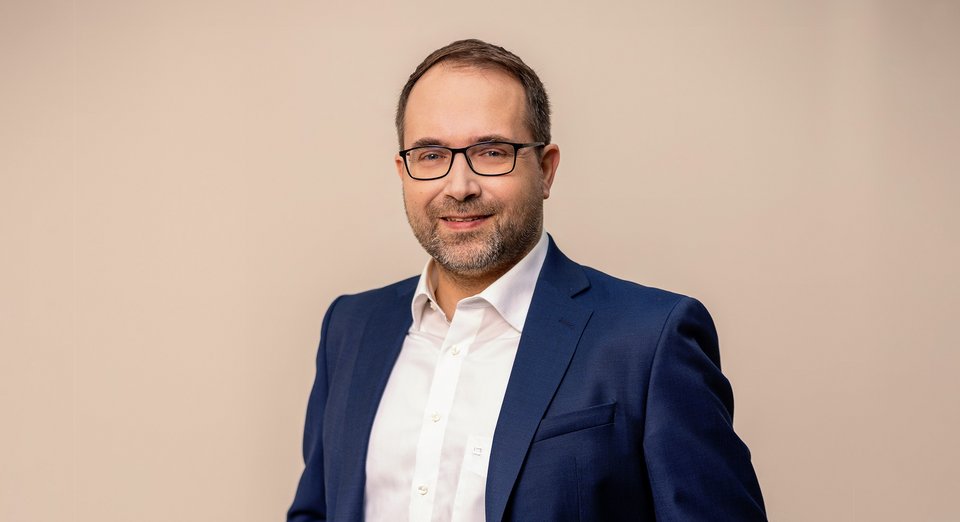
Handelsblatt recently reported that "REWE is burdened by high debts". Now CFO Telerik Schischmanow clarifies in an interview with the same medium that REWE Group is in a solid position. We also spoke to him about REWE Group's financial situation on the occasion of the report and did a fact check.
one: Mr Schischmanow, the Handelsblatt recently published an article entitled "REWE is burdened by high debts" or "16 billion euros in debts burden REWE - banks earn more than owners". This can allegedly be seen in the current annual report. What do you say as CFO? What is the situation at REWE Group?
Telerik Schischmanow: The statements in the article are - I have to say this so clearly - not correct. Completely wrong conclusions have been drawn and assumptions have been made that are not tenable. The fact is that 2023 was the best year in our company's history. REWE Group is in a solid and stable position.
one: What does the renowned rating agency Standard&Poors say about this? REWE Group has had its business profile and financial situation rated by Standard & Poor's (S&P) for years. With what results?
Telerik Shishmanov: That's right, Standard & Poor's gave REWE Group a rating for the first time in 2010. This was followed two years ago by an upgrade - from BBB- to BBB. That's a good rating for a retail group. The rating has a total of 22 levels, we were rated level nine - that is more than mediocre. In the comparison group with other European competitors, we are on a par within the food retail sector. In a Travel and Tourism comparison, our biggest competitor is even five levels below us.
one: One of the theses in the article was that banks earn more than our shareholders. How do you explain this to our retailers?
Telerik Shishmanov: The thesis is not tenable. Our interest payments to banks and other lenders amount to 76.5 million euros. After deducting interest income and the interest rate swap, we make around 30 million euros per year. Our annual profit amounts to 736 million euros. The consolidated net profit for the shareholders amounts to 672.2 million euros. I think these figures speak for themselves.
one: Let's continue with the fact check: the headline of the online article was "16 billion euros in debt burdening REWE". That's a frighteningly high sum...
Telerik Shishmanov:... which unfortunately was not interpreted correctly. The 16 billion euros mentioned is the so-called net debt. This net debt is not a claim. It is the balance sheet disclosure of "lease liabilities", which in our case are primarily future rents for our locations. And since we are successful, expanding and extending leases, our future rents will naturally increase. Due to the accounting rules (IFRS), we are obliged to recognise parts of these rental expenses as interest. Banks and lenders earn nothing at all from this purely imputed interest totalling 557 million euros. These are rental expenses that are paid to landlords. And that brings us full circle to your previous question: of course banks and lenders don't earn more than our shareholders.
one: However, Handelsblatt quotes you from an interview on the annual report as follows: "We are still not in a position to generate the investments we need to be equipped for the future. So far, we have to take on 200 to 400 million euros in new debt every year."
Telerik Shishmanov: That is correct in terms of content, but taken completely out of context. In the same interview, I say: "We had the best year in our company's history in 2023. REWE Group is in a solid and stable position." My statement was directly related to the investments made and planned in the company's development and our growth. More loans are not bad per se for a group that is growing and developing - especially as we are investing in property. As already mentioned, this also increases what is known as net debt. In our case, these are the future rents for our locations that I have already mentioned. These naturally increase as we expand and extend rental agreements - which is exclusively positive.
one: In the article, the author makes comparative calculations on return on equity, among other things. He claims that the return on equity at Metro, Edeka, Tesco or Carrefour is significantly higher than at REWE Group.
Telerik Schischmanow: That's comparing apples with pears: For example, parts of a company organised as a cooperative, which are accounted for in accordance with the German Commercial Code (HGB), with our overall balance sheet, which is prepared in accordance with the International Reporting Standard (IFRS). These are two completely different accounting standards that treat areas such as provisions, leasing or intangible assets differently. Comparisons with listed companies are also misleading. Their shareholders earn money through dividends, whereas our shareholders generate their profits almost entirely through their operating business, while our annual profit is almost entirely reinvested in the company.


